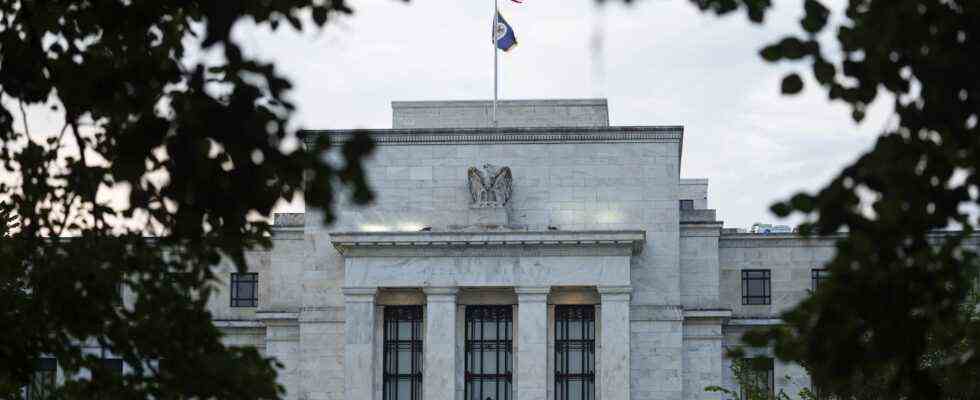Status: 04.11.2021 6:16 p.m.
The US Federal Reserve has initiated tapering – the cautious departure from the zero interest rate policy. The fact that the US monetary authorities are proceeding cautiously protects the stock exchanges from turmoil. When will Europe follow suit?
Zero interest rates, a flood of trillions in money: that has been the policy of the central banks so far. But that could change now. First step on Wednesday evening by the US Federal Reserve. So far, it has been pumping $ 120 billion into the financial market every month by buying stocks. That should be less, says Holger Schmieding, chief economist of the Berenberg-Bank: “The point is that you slowly say goodbye to these bond purchases – that you don’t stop buying bonds abruptly, but sneak out. In my opinion, the FED should have been quicker can.”
Instead of 120 billion, they now want to pump “only” 105 billion dollars into the market. It is actually just a first small triple step. The goal: not to turn off the money too quickly, not to overwhelm the financial markets and the economy. Now a small step, carefully indicating the rest.
The Bank of England is also reluctant
That is what the Bank of England did today, the British central bank. A rate hike? Probably in December, says economist Michael Heise of Macroadvisors: “The economy is still suffering from Brexit. In this respect, we have bought some time here, but I think it is only a matter of time before the Bank of England too the first interest rate hike is made. In this respect, the environment for monetary policy is changing globally. “
Because the British central bank is not just any central bank; Many money guards around the world are likely to watch them closely, says Berenberg banker Holger Schmieding, who himself often works in London: “Among the major central banks, the Bank of England would be the first to react to increasing inflationary pressure. But it also has one Reason to be relatively far ahead. And the reason is called Brexit. “
Due to Brexit, labor shortages and supply chain problems, prices on the island are rising faster. In London you have to resist more violently than the European central bankers on the Main. But given the high inflation, they too will soon have to think about pumping less money into the market and buying fewer bonds.
Wrestling over the course of the ECB
This is being demanded louder and louder in Germany, but the European Central Bank is making policy for the entire eurozone. For the countries in southern Europe, less bond purchases would be unpleasant, says economist Heise: “The termination of these bond purchases by the central banks would mean higher interest rates for Italy because the demand for Italian government bonds would then be lower. Interest rates in Italy are high, which is very high inconvenient. And that’s why the ECB will come under pressure from the Italian side. “
Politicians from many capitals are pulling at the ECB – also from very different directions. Result: In triple steps, the central bankers should get politicians and markets used to the new world. Step by step less flood of money – and then maybe even up with interest rates in the euro zone in 2023, says Berenberg-Banker Schmieding: “Interest rates will rise over time over the years. But I don’t think we will get to the returns of the 1990s will return. Four or five percent – we shouldn’t see that again this decade. “
The great anticipation of high interest rates – savers can put their make-up on. But a slower end to the enormous flood of money: the course has just been set for this.
ARD-Börse: End of the flood of money – Fed and BoE have decided
Victor Gojdka, ARD Börse, November 4, 2021 5:33 p.m.

